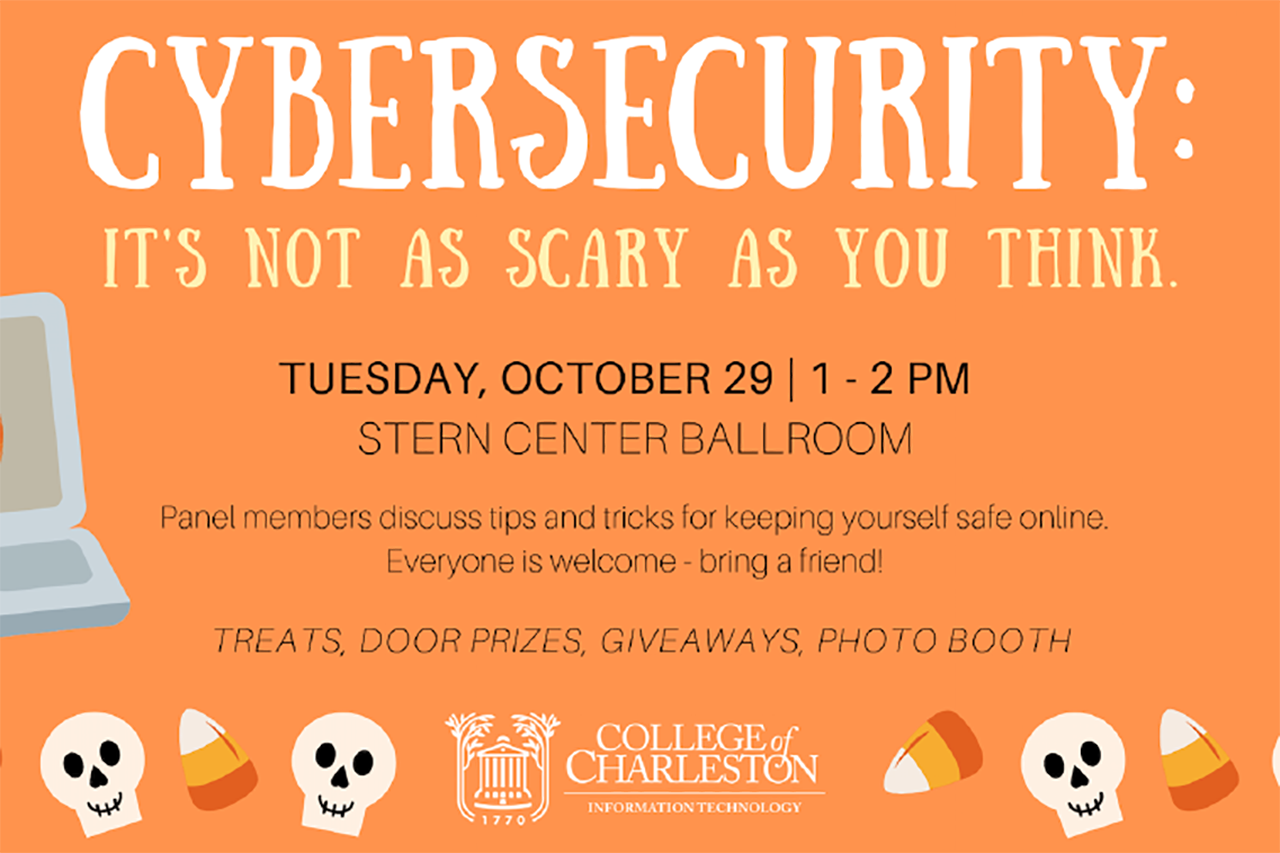October is National Cybersecurity Awareness Month, a national effort to raise awareness about the importance of staying safe online. The overarching theme for the month is, “Own IT. Secure IT. Protect IT.” – and the College of Charleston Division of Information Technology is proud to be a champion for this online safety and education initiative.
With the goal of dispelling common myths about cybersecurity – and excuses like “It’s too hard,” “There’s nothing I can do about it,” “It’s not going to happen to me” – while also empowering students, faculty and staff with the information and tools they need to stay protected online, IT is hosting a discussion, “Cybersecurity: It’s Not As Scary As You Think,” for the College community on Tuesday, Oct. 29, 2019, from 1 to 2 p.m. in the Stern Student Center Ballroom.
The first 50 attendees get laptop camera covers and maroon sunglasses (reminding you to never let anyone see your passwords), and there will even be a photo booth!
Can’t wait for all the activity? Get started with some tips and tricks you can implement now to protect yourself and your family against cyber threats:
- Never click and tell. Keep account numbers, social security numbers and passwords private. Avoid posting information about yourself, such as your full name, address, birthday and even vacation plans online or on social media.
- Limit app permissions. Check your app permissions and learn to say “no” to privilege requests that don’t make sense. Delete apps you don’t need or no longer use.
- Make passwords hard to guess. Avoid using personal information such as your name or pets’ names and common words like password or 1234. Instead, get creative and substitute letters with punctuation or symbols. Consider using the longest password or passphrase (a sequence of words like ILOVEtoreadtheSKY!) permissible.
- Protect accounts with MFA. Multi-factor authentication (MFA) is often available for financial, social media and email accounts. MFA makes your account security stronger and reduces the risk of online fraud and identity theft.
- Be cautious of free Wi-Fi. Beware of connecting to fake public networks. When using free Wi-Fi, avoid conducting any personal business that requires passwords or financial information, configure and turn off file sharing and turn off automatic connect. Always choose “forget network” after using public Wi-Fi. Using your smartphone as a hotspot is often a safer alternative to using an insecure network.
For more details about the “Cybersecurity: It’s Not As Scary As You Think” event, and to receive October cybersecurity tips, follow IT on social media (Facebook @cofcit, Twitter @cofcit, Instagram @cofc_it and Yammer).




